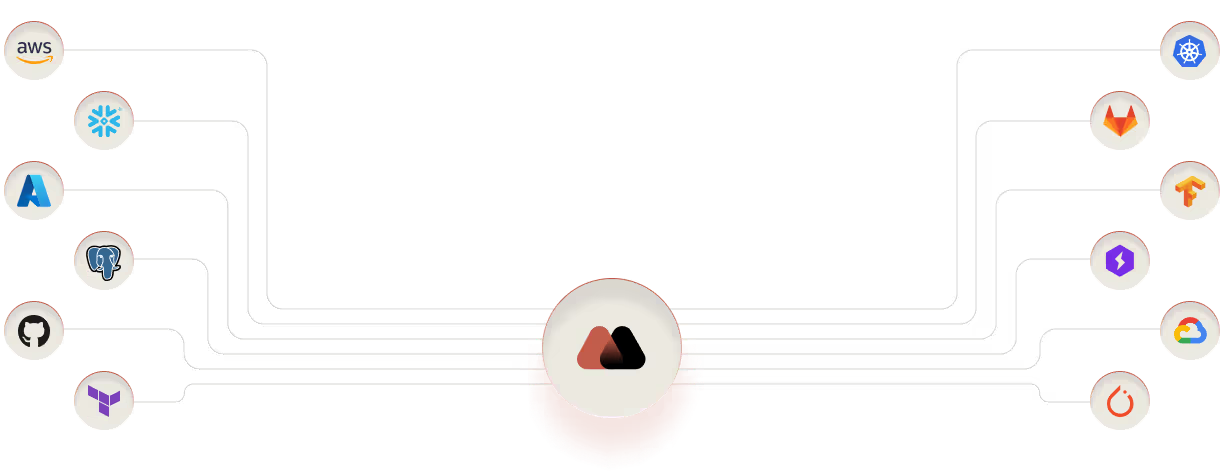
Your data, your infrastructure
80%
15%
Your data should never leave your walls.
With software deployed on your private infrastructure, access stays in-house.

.avif)
Custom LLM training
80%
15%
We train our AI Agents on your documents and data, so they’re ready to handle your verification tasks as soon as you adopt them.

Automate your clinical decision workflows with precision
Enhance Patient Outcomes
AI tools analyze clinical data and patient history to provide optimized treatment recommendations.
Support Clinical Judgments
Analyze vast amounts of data in seconds to make faster, more informed clinical decisions,
Reduce Misdiagnosis Rates
Ensure accurate clinical assessments by using AI to cross-reference vast medical libraries and patient data.
Optimize Treatment Protocols
AI analyzes hundreds of data points to help clinicians make better decisions regarding patient care plans.
Scale Clinical Expertise
Manage larger patient populations effectively and provide clinical support at scale without expanding your team.
Follow Healthcare Regulations
AI Agents help you make clinical decisions while complying with regulations like HIPAA and the ACA.
How it works

Extract patient data in custom fields
Document AI extracts relevant information such as patient demographics, medical histories, and diagnostic information.

Make optimal clinical decisions
Decision AI carries out detailed assessments on extracted data to help your clinic make informed patient care and treatment plans.

Immediately access key medical information
Database AI uses your databases to find this information and returns it in the form of natural language responses.

Boost staff and patient support
Conversational AI returns this information in the form of clear, natural language responses.

See automated clinical decision-making in action
See how our AI Agents work live before you commit. Schedule a free, 30-minute consultation today.
See how AI Agents work in real time
Learn how to apply them to your business
Discuss pricing & project roadmap
Get answers to all your questions
Leave no questions unanswered
Can clinical decision support systems integrate clinical practice guidelines with electronic health records to enhance patient safety?
A Clinical Decision Support System can integrate clinical practice guidelines directly into electronic health records (EHRs) to provide healthcare professionals with practical, data-driven information at the point of care. This helps maintain patient safety by quickly informing staff about potential risks like drug interactions based on the patient's specific health data.
How can healthcare professionals utilize decision support systems to improve patient outcomes?
Healthcare professionals can use decision support systems to access real-time insights and clinical best practices that are tailored to specific patient outcomes. These systems analyze comprehensive patient data to offer tailored treatment suggestions, risk assessments, and preventive healthcare measures. As a result, healthcare providers can ensure high-quality care that’s effective and safe using clinical decision support tools.
How do AI-enhanced electronic medical records improve knowledge management and support systems in healthcare?
AI algorithms analyze large datasets, including clinical data and patient data reports, to identify patterns and predict outcomes that aren’t easy to find using manual methods. This approach ensures that treatment decisions are based on the patient’s electronic medical record and electronic health record for optimal healthcare delivery.
How can AI benefit evidence-based medicine for clinical decision-making within health systems?
Evidence-based medicine integrates clinical expertise with the best available clinical evidence from systematic research. It’s important for clinical decision-making within health systems because it involves a comprehensive data analysis, including clinical guidelines, relevant data, and patient reports. This boosts clinical decision support by ensuring medication safety for each patient.
How do AI-powered health information technology systems enhance patient safety and healthcare provider decision-making?
Health information technology systems, especially those that include electronic health records (EHRs), significantly enhance patient safety by reducing medication errors and giving healthcare providers access to accurate patient data. These technologies improve the clinical decision-making process by providing real-time, evidence-based information much quicker than manual methods.
.svg)
.svg)

.avif)

